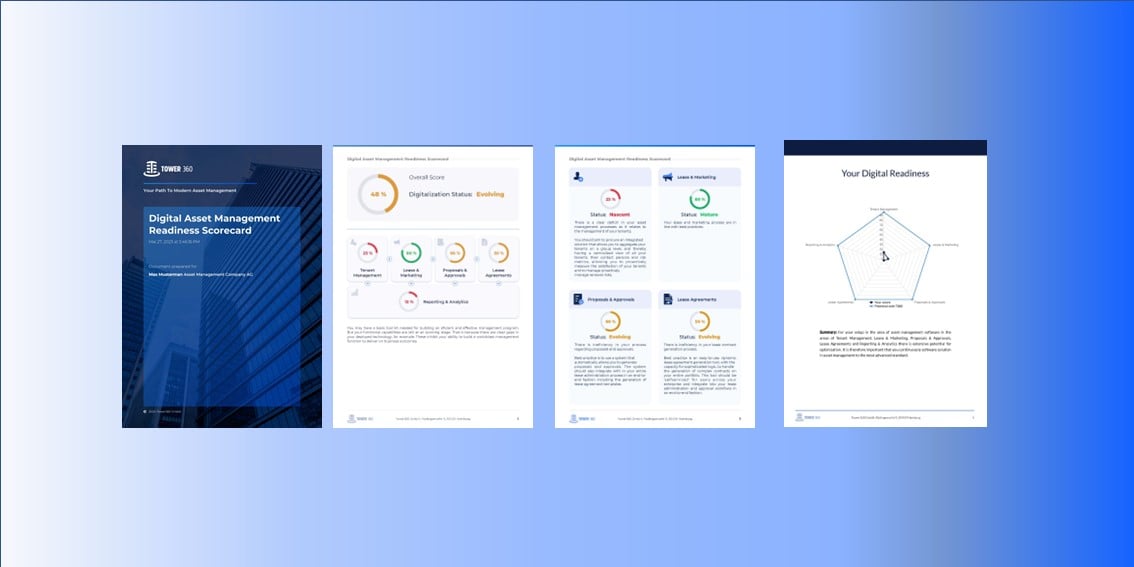Undoubtedly, the wave of technological advancement is sweeping across our personal lives and business operations, disrupting the traditional norms. This phenomenon hasn't spared real estate asset management teams. Digital transformation has now become a critical factor in their duties, marking a substantial shift in their operational paradigms.
Digital real estate technology, powered by artificial intelligence and machine learning, automates routine, repetitive tasks. This enables real estate professionals to accomplish more work in significantly less time. It allows you to concentrate your expertise and intellect on more advanced problem-solving, extending your impact and driving the strategic direction of your company.
There are several ways in which real estate asset manager can embark on their digital transformation journey. You can:
- Opt for ready-made, instead of custom-coded, real estate technology
- Identify advocates of digital innovation within the organization – those who are embracing digital and utilizing new asset management technology
- Concentrate on business and technological results – such as enhanced efficiencies and business processes, and cost reductions – represented by key performance indicators (KPIs)
- Set realistic return on investment (ROI) benchmarks
Whatever your digital strategy may be, consider adopting a phased approach in your digital transformation efforts to ensure that no one is left out. This strategy will more likely improve organizational efficiency, reduce operating costs, and facilitate the success of your digital transformation initiatives.
Next, evaluate your organization's current position in its digital transformation journey. Utilize the scorecard below to identify any weaknesses in your asset management system. This will enable you to address these shortcomings while formulating a sustainable, long-term plan for digitization.








